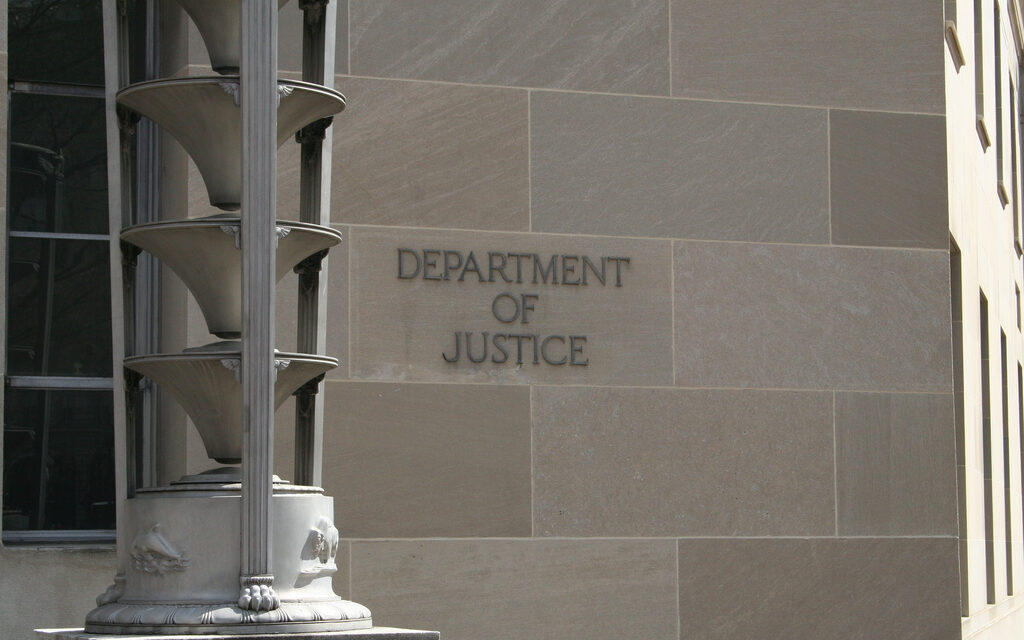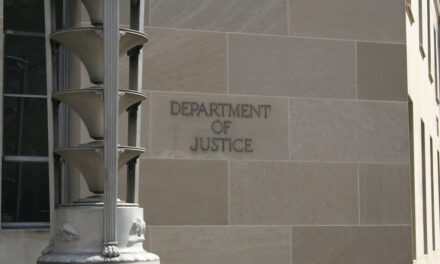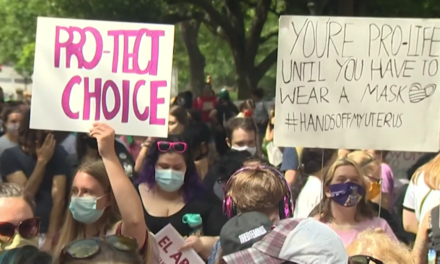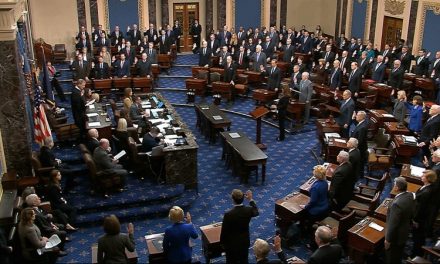Cross posted at dKos.
Short version: if you live in Wisconsin, vote for Linda Clifford in the primary for state Supreme Court justice tomorrow.
Long version: When we express concern over the partisan bent of the judiciary, we’re usually talking about the federal bench. But most law is administered at the state or local level; accordingly, it is very important that we work to ensure that state and local judges share our values.
Here in Wisconsin, primaries for many state and local elected offices are held in February, with general elections in April. We select our judges in non-partisan elections (i.e., the candidates are not officially affilliated with any political party), and tomorrow we will vote in a primary for a seat on the Wisconsin Supreme Court. Whoever wins the general election in April will win a ten-year term on the bench.
In general, there are lots of problems with judicial elections. Indiana University law professor Charles Geyh describes four realities of what he calls the “axiom of 80”:
- 80% of the public favors selection of judges via election.
- Roughly 80% of the public typically doesn’t vote in judicial elections. Voters won’t go to the polls just to vote for judges, and if there are other (non-judicial) races on the ballot, you don’t need a Diebold machine to expect a significant undervote on the judicial races.
- About 80% of the public, including those who do vote in judicial elections, don’t know anything about the candidates and can’t even identify them. It is therefore not surprising why voter turnout is so low — what’s the point of voting if you don’t even know what you’re voting for?
- Despite the high support for judicial elections, more than 80% of the public believes that when a judge is obligated to raise the funds needed to run an electoral campaign, s/he will be influenced in his/her decisions on the bench by campaign contributors. (The other 20% are Dumbya’s base.)
These problems do have an up side, though — if we are more aware of them than the conservatives, and if we make more of an effort to support our candidate than they do, it ought to be relatively simple to ensure that our candidate gets a ten-year term on the Wisconsin Supreme Court. This is particularly important because of the identity of the retiring justice who is giving up his seat: Jon Wilcox.
Wilcox, whose term expires on July 31, was first appointed to the Wisconsin Supreme Court in 1992 to fill a vacancy created by the retirement of his predecessor. Under Wisconsin law, a justice who retires in the middle of his/her term can be replaced by gubernatorial appointment; this has often led justices who want to retire and who sympathize with the governor’s party to retire with a year left in their terms in order to permit the governor to appoint their replacement and give that person the electoral advantages conveyed by incumbency. In any case, the governor in 1992 was Tommy Thompson, now better known as a BushCo shill and Republic Party presidential wannabe. That alone should tell you why electing a progressive justice would be a nice pick-up for us, but there’s more.
Wilcox won a full term on the court in 1997, but not without controversy. He illegally coordinated get-out-the-vote efforts with Wisconsin Citizens for Voter Participation, a group best known as a vociferous opponent of public schooling and which poured over $200,000 into last-minute advertising, mailings, and phone calls supporting Wilcox. Ultimately, Wilcox was compelled to pay a $10,000 fine for the violation, and his campaign manager and the WCVP’s co-founder, both long-time Rethug operatives, were also fined. Not surprisingly, Wilcox tends to favor conservative Republic positions.
There are three candidates to replace him, and two will emerge from tomorrow’s primary to run in April’s general election. The candidates are Washington County judge Annette Ziegler, Madison civil attorney Linda Clifford, and Madison criminal defense attorney Joe Sommers.
Ziegler and Clifford have both raised over $300,000 for the race and have been “campaigning” since late last year; Sommers just got into the race last month and is not likely to advance to the general election.
Ziegler has been airing commercials the past couple of weeks touting her conservative credentials; the Club for Growth, that paragon of Rethug campaign slime, has paid for some of the commercials. That should tell you all you need to know about why we don’t want her on the state Supreme Court. To add a little more context, both she and Sommers are backed by anti-choice groups: Ziegler by Wisconsin Right to Life, and Sommers by Pro-Life Wisconsin. Sadly, from my admittedly Madison-centered perspective, Ziegler seems to be the favorite to win the seat.
But let’s contrast Ziegler with Clifford, particularly in terms of women’s health and choice. From today’s electronic message from Planned Parenthood Advocates of Wisconsin:
This spring, Wisconsinites have the opportunity to protect access to safe, legal abortion and other reproductive rights by electing a new Wisconsin Supreme Court Justice and potentially swinging the court to a pro-women’s health majority.
Supreme Court candidates Annette Ziegler and Joe Sommers are both backed by extremist anti-choice groups, WI Right to Life and Pro-Life WI, who oppose women’s access to abortion and birth control, even in cases of rape and incest.
On Tuesday, February 20th vote for the only candidate who supports women’s access to reproductive health care: Linda Clifford – Wisconsin Supreme Court.
Wisconsin is a state where women’s right to choose cannot be taken for granted. Suppose for a minute that Roe v. Wade were overturned. Then we’d be dealing with this:
(1) Any person, other than the mother, who intentionally destroys the life of an unborn child is guilty of a Class H felony.
(2) Any person, other than the mother, who does either of the following is guilty of a Class E felony:
(a) Intentionally destroys the life of an unborn child; or
(b) Causes the death of the mother by an act done with intent to destroy the life of an unborn child. It is unnecessary to prove that the fetus was alive when the act so causing the mother’s death was committed.
(3) Any pregnant woman who intentionally destroys the life of her unborn child or who consents to such destruction by another may be fined not more than $200 or imprisoned not more than 6 months or both.
(4) Any pregnant woman who intentionally destroys the life of her unborn quick child or who consents to such destruction by another is guilty of a Class I felony.
(5) This section does not apply to a therapeutic abortion which:
(a) Is performed by a physician; and
(b) Is necessary, or is advised by 2 other physicians as necessary, to save the life of the mother; and
(c) Unless an emergency prevents, is performed in a licensed maternity hospital.
(6) In this section “unborn child” means a human being from the time of conception until it is born alive.
That’s Wisconsin Statute 940.04. It criminalizes all abortions that aren’t absolutely necessary to save the life of the mother and some that are. It’s inactive because of Roe v. Wade, but if the Supreme Court of the United States ever overturns that decision (PLEASE!!! hold on a few more years, Justice Stevens!), this law would be effective in Wisconsin once again — and several states have similar statutes on the books. And if the SCOTUS decides in Gonzales v. Planned Parenthood that such health exceptions aren’t necessary for abortion restrictions, we can absolutely expect that any health exception on the books anywhere will be under attack, and we’re going to need friendly state Supreme Court justices to save the lives of women who need therapeutic abortions.
Of course, no diary such as this would be complete without mentioning the case of Neil Noesen, the Wisconsin pharmacist who is now a darling of the extremist right because he refused on religious grounds to fill or transfer a woman’s prescription for routine birth control. Noesen was sanctioned by the State Pharmacy Examining Board — and rightly so. There can be no excuse for a pharmacist ever refusing to fill a prescription ordered by a duly licensed medical doctor for a patient when the prescription does not present any legitimate threat of adverse drug interaction effects. Noesen has appealed the sanctions, though, and his case is likely to end up in front of the Wisconsin Supreme Court. To ensure that patients’ access to prescription medications is never threatened by the religious faith of pharmacists, we must elect a progressive Supreme Court justice, one who will not side with dominionists and fascists against basic medical necessity.
In summary, if you are registered to vote in Wisconsin, please cast your ballot tomorrow for Linda Clifford in the primary for state Supreme Court justice. You’ll be voting for fairness, justice, choice, integrity, and to protect our access to basic necessities.






